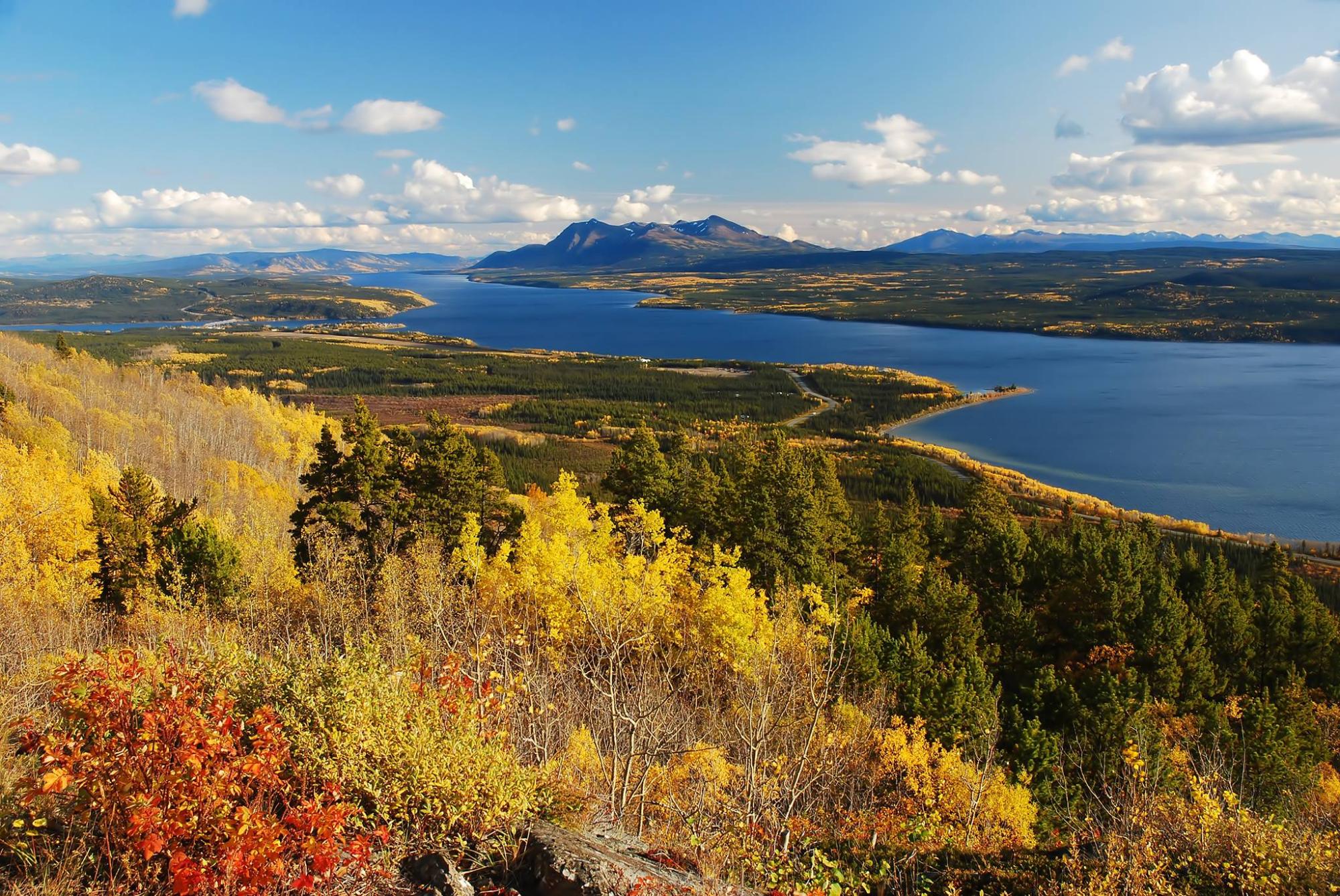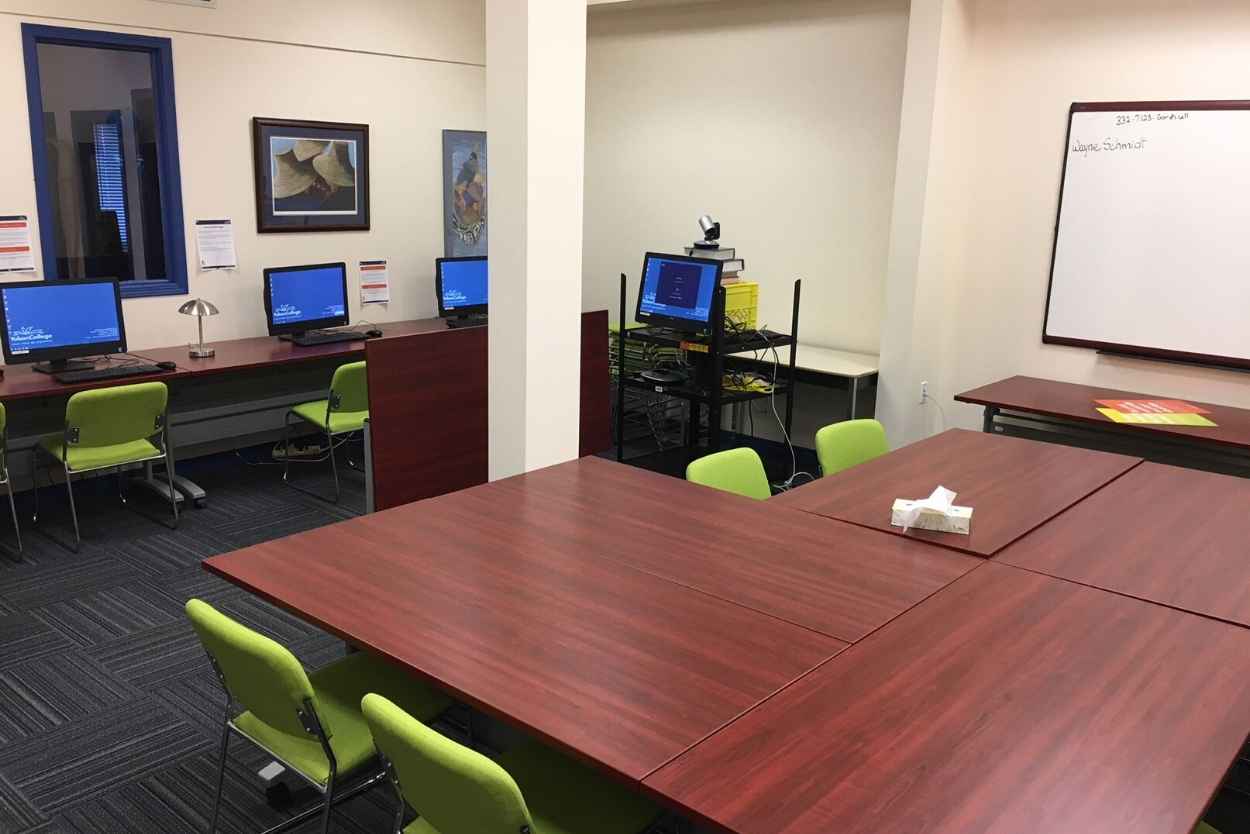Supportive distance learning in Teslin
Distance learning, or online learning, provides students with access to class instruction over the Internet, rather than in a classroom.
Learn more
The community of Teslin is located within the Traditional Territory of the Tlingit First Nation.
Known as the 'gateway' to the Southern Lakes region, Teslin boasts business opportunities, outdoor adventures, a tight knit community and plenty amenities, including the Yukon College Teslin Campus. The campus is housed in the modern coastal-style Teslin Tlingit Council Administration Building, and strong partnerships with the Teslin Tlingit Council and local organizations have enabled the campus to meet the community’s ever evolving education and training needs.


At Teslin Campus, the doors are always open. Community members are invited to drop in any time and use the public computer lab (when there are no classes in session) or connect to the internet on their own device.
The campus is also a great place to host community dinners or lunch meetings.
This one-day course provides students with an understanding of Emergency Response Plans, Maintenance Management Plans and Standard Operating Procedures. Students will learn how to develop and use these important tools to efficiently support operation and maintenance duties.
This 1 day course gives the participants an opportunity to learn a variety of techniques for iron and manganese removal from drinking water.
This 3.5 day course is designed to prepare you to write their Environmental Operators Certification Program (EOCP) exam for Bulk Water Delivery (required by the Yukon Government Drinking Water Regulation).
This 27 hour course is designed to prepare you to write your Environmental Operators Certification Program (EOCP) certification for Water Treatment Level 1 or 2. You will go at your own pace through online modules and you will have access to an instructor to answer any questions you may have.
For Fall 2024: We are running two courses WO001 – Basic Small Water Systems Operations and WO001L-Small Water System Operator Lab together to allow for both in-class and hands-on learning (improved learning experience).
In this course, students explore the written and oral skills needed to communicate in diverse organizational and cultural contexts.
This course introduces students to critical reading, critical thinking, and academic writing through the study and application of the principles of university-level discourse. English 100 focuses on expository writing.
This course introduces students to four literary genres: short fiction, poetry, the novel, and drama. Students learn the fundamentals of university-level literary study and explore major themes suggested by the selected texts.
This course examines Yukon First Nations history, culture and governance. Topics covered include pre-contact cultures of Yukon, subsistence economies, social and political organizations, cultural expressions, and cultural protocols.
NOST 229 is a variable-topics course, designed to permit Northern Studies and other students to take advantage of the expertise of visiting scholars or professors and other-institution courses, to pilot a new course, or to enable students to engage in directed studies or guided independent resear
MS Project is a powerful industry standard software tool than can help you manage projects, programs, and multiple tasks.
This course covers the major physical, cognitive, and psychosocial development of normal growth throughout the human lifespan.
Tourism Labour Market - Case Study
The goal of COMP 161 is for students to become independent and effective computer application users, in both their current studies and future careers. The course will provide students with hands-on interaction with common applications for analysis and problem-solving.
Canada's climate has changed from historical conditions, namely a global increase in temperature over the last century. This temperature increase is occurring twice as fast in the circumpolar region. Impacts of this warming are already affecting many aspects of daily life.
Distance learning, or online learning, provides students with access to class instruction over the Internet, rather than in a classroom.
Learn more
Coordinator/Instructor, Teslin
Monday to Friday
8:30am - 5:00pm
Box 28, 60 Nisutlin Drive
Teslin, Y0A 1B0
Give us a shout or drop in during campus hours to learn about upcoming programs, events and on-demand courses.